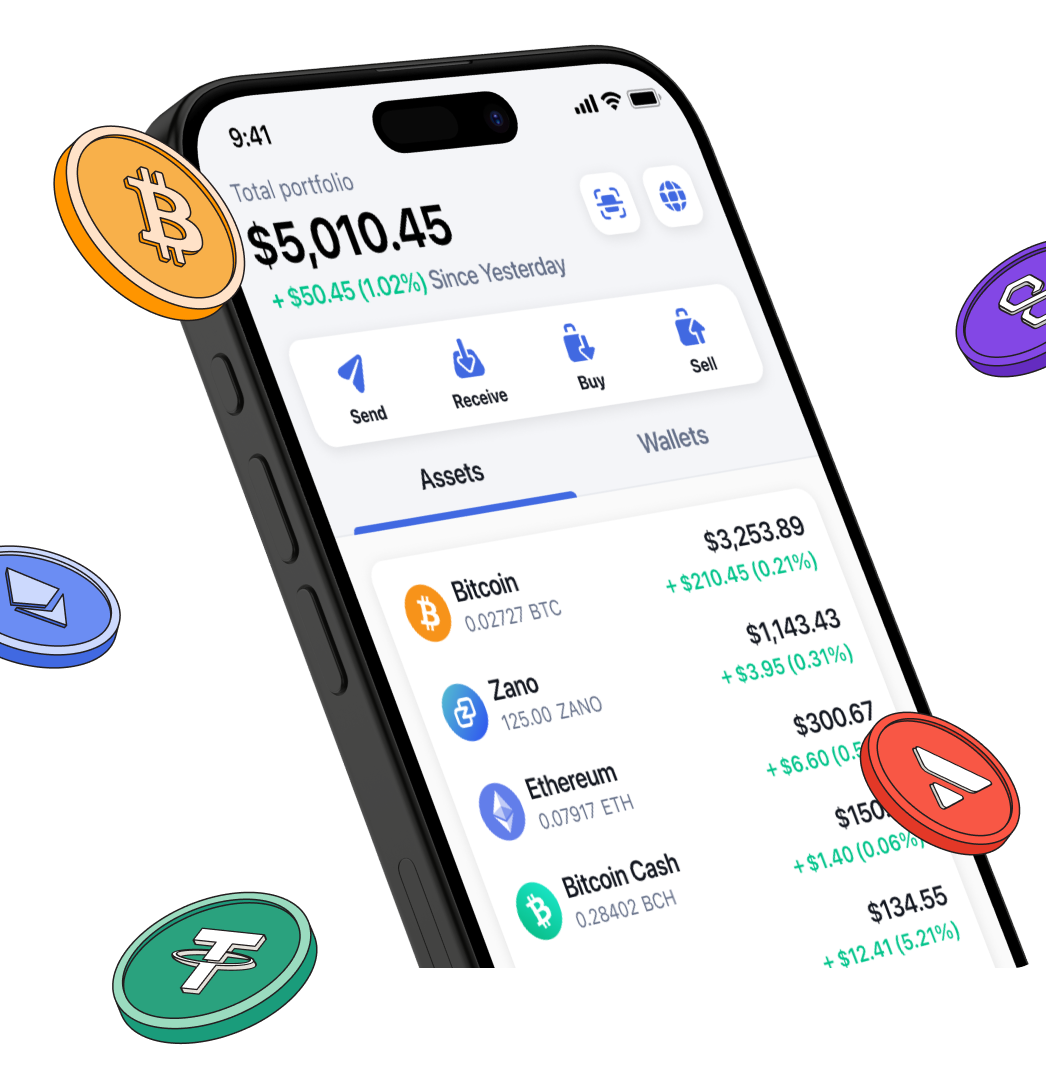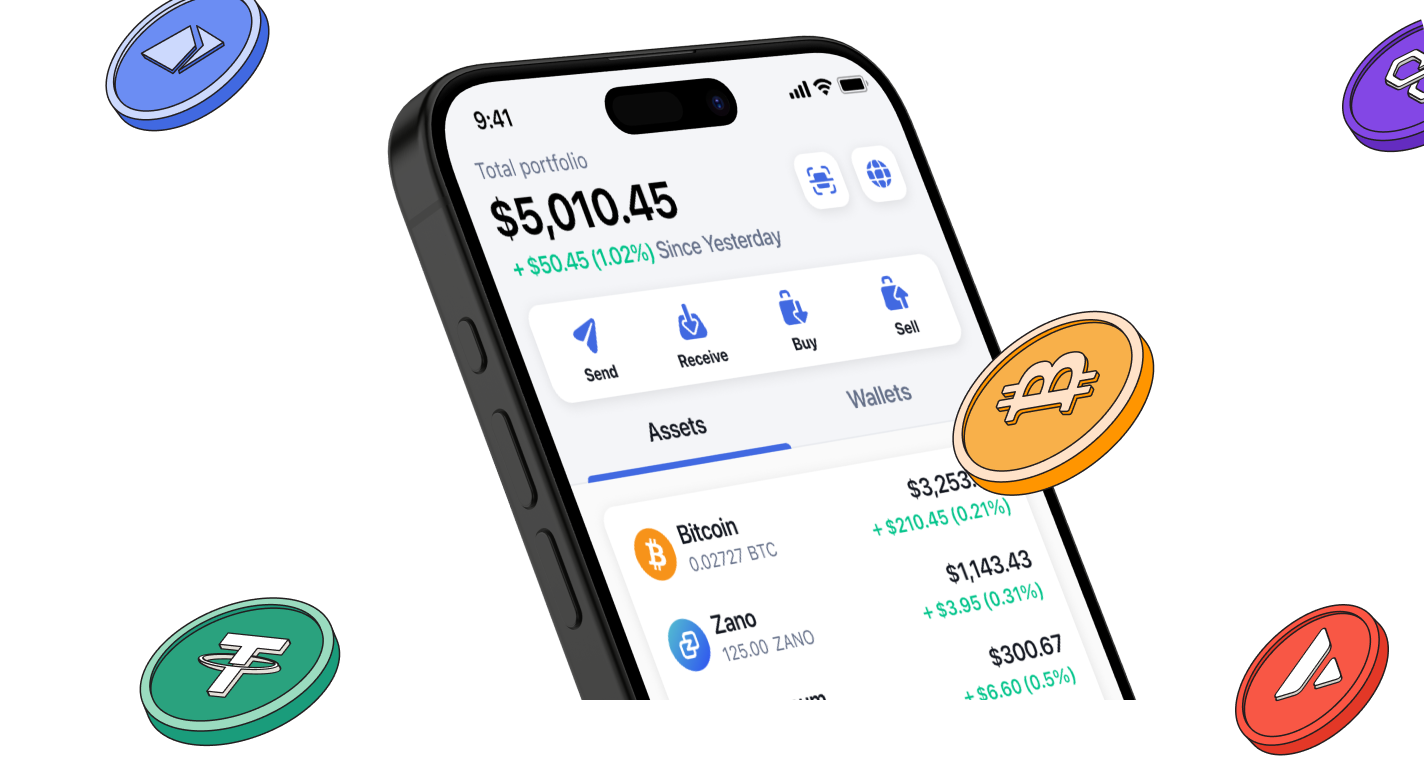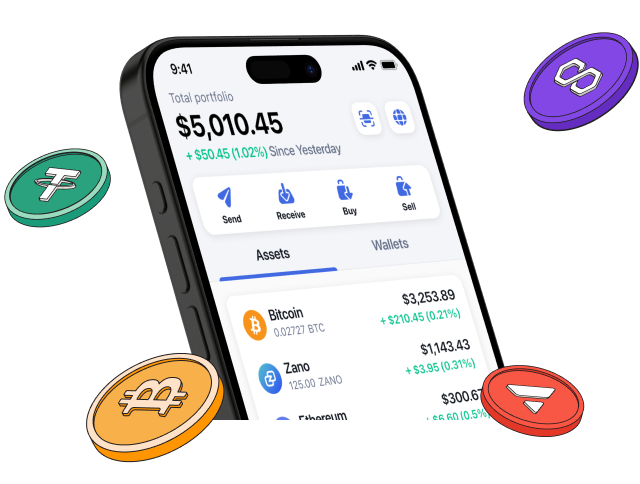How Are ICOs Taxed?
Last updated

Table of Contents
- Overview of ICOs (Initial Coin Offerings)
- Understanding ICOs
- Tax Authorities and ICO Guidance
- Taxable Events Related to ICOs
- Income vs. Capital Gains
- ICOs for Creators and Founders
- ICOs for Investors and Traders
- Utility Tokens vs. Security Tokens
- ICOs and Cross-Border Tax Considerations
- ICO Staking, Rewards, and Governance Tokens
- ICO Refunds, Burned Tokens, and Special Cases
- ICO Tax Software and Tracking Tools
- Common Mistakes and Audit Risks
- Voluntary Disclosure and Correcting Past Mistakes
- Tax-Advantaged Strategies for ICO Investors
- Accounting and Bookkeeping for ICOs
- Regulatory Developments and Future of ICO Taxation
- Case Studies
- Conclusion
Overview of ICOs (Initial Coin Offerings)
An Initial Coin Offering (ICO) is a method by which blockchain-based projects raise capital by offering digital tokens to investors. Unlike traditional fundraising models, ICOs allow investors to acquire tokens before the project is fully launched. These tokens may serve a variety of purposes, ranging from providing access to a network, staking rights, voting privileges, or potential future profit-sharing.
ICOs gained massive popularity around 2017–2018 during the cryptocurrency boom, providing startups with unprecedented access to global capital markets without relying on banks or venture capital. They have democratized investment opportunities, enabling retail investors worldwide to participate in early-stage blockchain projects.
Despite their appeal, ICOs carry significant risks due to the lack of regulation in many jurisdictions, potential for fraud, and volatile token values. Understanding how ICOs are taxed is crucial to avoid unexpected liabilities and comply with local and international tax laws.
Why ICO Taxation Matters for Investors, Founders, and Businesses
ICO taxation is not only a compliance requirement but also a key element of financial planning. For investors, failing to account for taxes on token purchases, sales, or profits can result in penalties, interest, or audits. Even receiving tokens for free during an ICO may trigger income recognition, which must be reported.
For founders and businesses, ICOs often involve complex tax considerations related to token issuance, founder allocations, vesting schedules, and operational expenses. Misclassification of ICO proceeds, improper expense deductions, or misunderstanding the tax treatment of tokens can lead to significant tax liabilities.
Moreover, with jurisdictions increasingly clarifying their stance on digital assets, proactive tax planning helps both investors and companies maximize tax efficiency and avoid disputes with authorities. Comprehensive knowledge of ICO taxation ensures that participants remain compliant while strategically optimizing their financial outcomes.
Differences Between ICOs, Airdrops, NFTs, and STOs (Security Token Offerings)
While ICOs, airdrops, NFTs, and STOs all involve digital tokens, their tax implications differ substantially:
-
ICOs: Typically a fundraising mechanism where investors purchase tokens in exchange for fiat or cryptocurrency. Taxable events can occur at purchase, receipt, or sale, depending on local regulations.
-
Airdrops: Free distribution of tokens to holders, often triggering income recognition at the time of receipt. Unlike ICOs, investors do not provide consideration for airdropped tokens.
-
NFTs (Non-Fungible Tokens): Represent unique digital assets. Taxation is usually triggered upon sale or exchange and may differ for collectors vs. creators.
-
STOs: Tokenized securities that are subject to securities law regulations. They often have additional tax considerations akin to traditional equity investments, including dividend and capital gains treatment.
Understanding these differences is crucial because the tax events, reporting obligations, and compliance requirements vary based on the type of token distribution. ICOs generally combine aspects of fundraising and potential investment gains, making their tax treatment particularly complex.
Regulatory Landscape and Global Growth Trends
Globally, ICO regulations are evolving rapidly. Some countries, such as Switzerland and Singapore, offer clear frameworks that classify tokens based on utility or security functions. Others, like the United States and Canada, regulate ICOs strictly, often treating security tokens as investment instruments subject to capital gains or income tax.
The ICO market has grown significantly, with thousands of projects raising billions in capital over the past few years. However, regulatory scrutiny has also increased, pushing founders to adopt KYC/AML compliance and maintain detailed transaction records for tax purposes.
Investors and businesses must stay informed about local laws and global developments, as cross-border ICO participation can create additional reporting obligations, such as FATCA, FBAR, or T1135 filings. Strategic tax planning and professional guidance are critical in navigating this evolving landscape.
ICO taxation can be highly complex, with multiple triggers and jurisdiction-specific rules. Block3 Finance provides expert guidance for both investors and founders, ensuring ICO transactions are accurately reported, tax-efficient, and fully compliant. Book a free consultation today to safeguard your ICO investments and operations.
Understanding ICOs
Definition and Purpose of ICOs
An ICO is essentially a crowdfunding mechanism for blockchain projects, allowing startups to raise capital by issuing digital tokens. The purpose of an ICO is twofold:
-
Funding the project: Early-stage blockchain startups often lack access to traditional financing and use ICOs to secure necessary resources for development, marketing, and operational expenses.
-
Engaging the community: Investors receive tokens that may provide access to future services, voting rights, or potential financial returns. This approach aligns incentives between founders and supporters, creating an engaged ecosystem from day one.
Unlike traditional equity investments, ICO participants generally do not receive ownership in the company. Instead, they acquire tokens with potential future utility or value, making the tax implications distinct from standard securities.
Token Types Issued During ICOs (Utility Tokens vs. Security Tokens)
-
Utility Tokens: These tokens provide access to a product or service within a blockchain network. Tax treatment typically follows a capital gains framework, but receiving tokens at a discount or in exchange for services may trigger ordinary income recognition.
-
Security Tokens: Tokens classified as securities represent an ownership stake, profit-sharing rights, or dividend entitlement. They are often subject to traditional securities regulations and may trigger income tax, capital gains tax, or withholding tax depending on investor residency and local law.
The distinction between these token types is critical because misclassification can result in tax penalties, audits, or invalidated deductions.
Phases of an ICO: Private Sale, Presale, Public Sale
-
Private Sale: Early investors, often venture capitalists or strategic partners, acquire tokens at a discounted rate. Tax implications may arise immediately if the tokens are considered income or property for the investor.
-
Presale: A broader audience, sometimes including retail investors, can participate before the public launch. Reporting obligations can differ depending on whether payment is made with fiat or crypto.
-
Public Sale: The ICO opens to the general public. Gains or income recognition may occur at purchase, receipt, or upon disposal of tokens, depending on jurisdiction.
Each phase introduces specific tax considerations regarding token valuation, fair market value at receipt, and eventual disposal. Detailed record-keeping is essential to ensure accurate reporting and minimize audit risk.
How ICOs Differ from Traditional Fundraising Mechanisms
Unlike traditional equity financing, which involves shares and formal legal agreements, ICOs:
-
Allow global participation, bypassing traditional financial intermediaries.
-
Enable rapid capital collection without bank approval.
-
Introduce unique tax events, such as receiving digital assets instead of cash.
-
Require participants to track token cost basis, fair market value, and subsequent transactions.
This decentralization and token-based structure create a complex taxation environment. Founders and investors must navigate income recognition, capital gains calculation, and compliance obligations, which differ significantly from standard fundraising.
Navigating ICO taxation requires careful planning and precise record-keeping. Block3 Finance helps investors and founders manage ICO tax obligations, optimize reporting, and remain fully compliant. Schedule a free consultation today to protect your ICO investments and business operations.
Tax Authorities and ICO Guidance
Global Approaches to ICO Taxation
ICOs operate in a rapidly evolving regulatory landscape, and taxation rules vary widely depending on jurisdiction. Understanding these approaches is critical for investors, founders, and businesses participating in ICOs:
-
United States: The IRS generally treats ICO tokens based on their classification as property or securities. Utility tokens are often subject to capital gains tax, while security tokens may be considered securities and taxed as investments with potential income or dividends. Every ICO-related transaction, including token receipt and sale, may trigger taxable events.
-
Canada: The CRA treats ICO proceeds depending on whether tokens are acquired for personal investment or as part of a business. Income can arise immediately upon receipt for businesses or as capital gains for investors. The CRA emphasizes accurate valuation at the time of receipt and subsequent disposal.
-
European Union: The EU has yet to create a unified approach, but member states individually classify tokens based on utility vs. security and may impose VAT, capital gains, or income tax on ICO activities. Some countries like Germany consider certain tokens as financial instruments, triggering stricter reporting obligations.
-
United Kingdom: HMRC distinguishes between business and personal ICO transactions. Utility tokens may be treated as assets for capital gains purposes, while security tokens are subject to income tax for corporate or individual investors.
-
Singapore: Singapore does not levy capital gains tax. However, ICO proceeds may be taxable as income for companies conducting the ICO as a business activity. Regulatory focus includes anti-money laundering (AML) compliance and token classification.
-
Australia: The ATO requires that ICO tokens be assessed according to CGT provisions for investors, while companies issuing tokens must account for proceeds as taxable income. Losses on token sale or disposal may offset gains in certain circumstances.
Each jurisdiction introduces nuances regarding valuation, reporting requirements, withholding obligations, and cross-border compliance, making international ICO participation complex. Investors and founders must maintain detailed records to meet these obligations and avoid penalties.
IRS Guidance on ICOs in the United States
The Internal Revenue Service (IRS) considers ICO tokens as property. Key takeaways include:
-
Receipt of Tokens: If an individual receives tokens in exchange for services or as part of a pre-sale agreement, this may trigger ordinary income recognition at fair market value (FMV) on the day of receipt.
-
Sale or Exchange of Tokens: selling tokens for fiat or other cryptocurrency triggers a capital gains or loss calculation based on the difference between the FMV at receipt and the sale price.
-
Token Classification: Utility tokens are generally treated as property, while security tokens may trigger additional reporting under securities law.
-
Reporting Obligations: Individuals and businesses must report token income, gains, and losses on Form 1040 (Schedule D and Form 8949) or applicable corporate forms. Failure to comply can lead to penalties and interest.
The IRS has issued limited but evolving guidance on ICO taxation, and investors must follow existing property and income rules until more detailed regulations are published.
CRA and Other Country-Specific Guidance
The Canada Revenue Agency (CRA) treats ICO tokens differently depending on the transaction purpose:
-
Business vs. Investment: If tokens are received as part of a business activity, the value at receipt is included as business income. For personal investments, gains or losses are generally considered capital gains or losses.
-
Fair Market Value Determination: CRA requires accurate valuation at the time of acquisition, often using the exchange price in fiat currency if available.
-
International Considerations: Cross-border ICO participation requires reporting foreign accounts and transactions (e.g., T1135 for Canadian residents holding foreign crypto).
Other countries like Germany, France, and Australia also provide guidance, typically focusing on:
-
Whether tokens are financial instruments or property
-
Timing and recognition of taxable events
-
Reporting requirements for corporate and individual taxpayers
Challenges Regulators Face in Defining ICO Tax Rules
Regulators face several challenges in applying tax rules to ICOs:
-
Token Classification Ambiguity: Tokens may function as utility, security, or hybrid assets, creating uncertainty in tax treatment.
-
Valuation Difficulties: Many ICOs occur on unregulated platforms with no official market price at issuance, complicating fair market value calculations.
-
Cross-Border Transactions: Investors often participate in global ICOs, triggering multiple jurisdictions’ reporting obligations.
-
Evolving DeFi and Blockchain Models: ICO structures are increasingly complex, sometimes including vesting schedules, token swaps, or smart contract-based distributions, making standard tax rules difficult to apply.
Professional guidance and proactive planning are critical to navigating this uncertain landscape and ensuring compliance.
ICO taxation is complex, multi-jurisdictional, and constantly evolving. Block3 Finance specializes in helping investors, founders, and businesses accurately report ICO transactions, optimize tax positions, and remain compliant with global tax rules. Book a free consultation today to navigate your ICO obligations confidently.
Taxable Events Related to ICOs
Purchasing ICO Tokens with Fiat or Crypto: When Is It Taxable?
ICO participants can purchase tokens using fiat or cryptocurrency. Tax implications include:
-
Fiat Purchases: Paying with fiat currency generally does not trigger immediate taxable events, but the cost basis of the tokens must be tracked for future capital gains calculation.
-
Crypto Purchases: Paying with cryptocurrency triggers a taxable disposition of the crypto used for the purchase. The difference between the crypto’s cost basis and FMV at the time of purchase is subject to capital gains tax.
Example: Alice uses 1 BTC (acquired at $20,000) to purchase ICO tokens valued at $50,000. Alice must report $30,000 as a capital gain on her BTC disposal.
Receiving Tokens: Income Recognition and FMV Determination
When tokens are received, taxation depends on whether the tokens are:
-
Purchased: Taxable upon sale, as outlined above.
-
Granted as part of an ICO promotion or bonus: Often recognized as ordinary income at FMV on receipt.
Fair Market Value Determination:
-
Use the exchange rate in the primary trading market at the time of receipt.
-
For tokens without an active market, professional valuation methods may be required, including project-based projections or reference prices.
Example: Bob receives 10,000 tokens from a private ICO allocation worth $2 per token at receipt. He must include $20,000 as income, even if he holds the tokens for future gains.
Selling ICO Tokens: Capital Gains Implications
Selling ICO tokens triggers capital gains or losses, calculated as:
- Gain/Loss = Sale Proceeds – Cost Basis
Example: Carol purchases 1,000 ICO tokens at $5 each ($5,000 total) and later sells them at $15 per token ($15,000 total). She must report a capital gain of $10,000.
Special considerations:
-
Short-term vs. long-term gains: Tax rates may differ depending on holding period.
-
Partial sales: Adjust cost basis using specific identification or FIFO methods.
Token Swaps, Conversions, or Early Exits
-
Token Swaps: Exchanging ICO tokens for other crypto may trigger capital gains. Calculate gains based on FMV of tokens received versus original cost basis.
-
Conversions: Converting tokens within the same ecosystem (e.g., upgrading to new token standards) may also be a taxable event if FMV is determinable.
-
Early Exits: Selling tokens before full vesting or lockup expiration can have additional income recognition, especially for founder or team allocations.
ICO Refunds and Failed ICOs: How These Are Treated for Tax Purposes
If an ICO fails or investors receive refunds:
-
Return of fiat or crypto: No gain or loss is recognized if the amount returned equals the original investment.
-
Tokens already issued: If investors received tokens before failure, FMV at receipt may still be considered taxable income.
-
Business participants: Companies may deduct operational losses if tokens become worthless due to ICO failure, subject to applicable tax rules.
ICO taxation involves multiple triggers, including purchases, token receipt, swaps, and sales. Block3 Finance helps investors, founders, and businesses manage complex ICO tax events, optimize reporting, and ensure compliance across jurisdictions. Book a free consultation today to clarify your ICO tax obligations and avoid costly mistakes.
Income vs. Capital Gains
Determining Whether ICO-Related Gains Count as Ordinary Income or Capital Gains
ICO gains can fall into two broad categories: ordinary income or capital gains. The distinction is crucial because it affects tax rates, reporting requirements, and deduction eligibility.
-
Ordinary Income:
-
Typically arises when tokens are received as compensation for services, as bonuses, or through founder allocations.
-
The value of tokens at the time of receipt is included in taxable income at fair market value (FMV).
-
Ordinary income is taxed at the taxpayer’s regular income tax rate, which is often higher than long-term capital gains rates.
-
-
Capital Gains:
-
Capital gains occur when tokens are purchased and later sold.
-
The gain or loss is calculated as:
Capital Gain/Loss = Sale Price – Purchase Price -
Long-term capital gains rates may apply if tokens are held beyond a specific period (e.g., over one year in the U.S.).
-
Example:
-
Alice receives 10,000 ICO tokens as part of a presale bonus. The FMV at receipt is $2 per token. She must report $20,000 as ordinary income immediately.
-
Later, she sells these tokens for $5 per token. The additional $30,000 is a capital gain, calculated as $50,000 (sale proceeds) – $20,000 (FMV at receipt).
Differences for Individual Investors, Traders, and Companies
-
Individual Investors:
-
Typically classified as holding tokens for investment purposes.
-
Gains from sales are capital gains, while token receipt for services is ordinary income.
-
Reporting is done on individual tax returns (e.g., Form 1040 Schedule D in the U.S. or T1 in Canada).
-
-
Traders:
-
Frequent buyers/sellers may be classified as trading businesses.
-
Profits from ICO token sales could be treated as ordinary business income, taxed at higher rates.
-
Losses may be fully deductible against other business income.
-
-
Companies and Corporations:
-
Tokens received by a company are often treated as business income.
-
Deductible expenses include marketing, development, and legal costs associated with the ICO.
-
Gains on token sales may also be subject to corporate tax.
-
Example:
- Bob runs a crypto trading firm. He buys ICO tokens regularly and sells them within months. His profits are treated as ordinary business income, not capital gains.
Case Studies and Real-World Examples
Case 1 – Presale Profit Recognition:
-
Founder receives tokens at $0.50 per token during a presale. At public sale, tokens are worth $5 each.
-
Immediate income recognition: FMV at receipt ($0.50) × number of tokens = ordinary income.
-
Future sale: difference between FMV at receipt and sale price = capital gain.
Case 2 – Trader Buying on ICO Launch:
-
Trader buys 5,000 tokens at $3 each with crypto. Sells 3 months later at $7 each.
-
Gain = $7 – $3 = $4 per token → capital gain of $20,000.
-
If classified as a trading business, gains may instead be ordinary income.
Case 3 – Company Accepting ICO Tokens:
-
Startup receives $100,000 worth of ICO tokens for consulting services. This is ordinary income.
-
Legal, marketing, and development costs are deductible, reducing taxable income.
Token Presale Profits vs. Public Sale Profits
-
Presale Profits: Often treated as ordinary income for founders or early investors due to special privileges or discounted token rates.
-
Public Sale Profits: Generally treated as capital gains for typical investors buying at standard ICO pricing.
Key Considerations:
-
Lockups and vesting periods affect timing of income recognition.
-
Reporting early-stage presale profits incorrectly can trigger audits.
Determining whether ICO gains are ordinary income or capital gains is complex and varies based on investor type, holding period, and token allocation. Block3 Finance helps investors, traders, and companies accurately classify ICO transactions, optimize tax outcomes, and maintain detailed records. Schedule a free consultation today to ensure your ICO profits are reported correctly and efficiently.
ICOs for Creators and Founders
Tax Implications of Launching an ICO
Launching an ICO is not just a fundraising exercise—it has significant tax and compliance implications:
-
Tokens issued by the project may create taxable events for the founder if allocated as compensation.
-
Funds received from the ICO (fiat or crypto) are considered business income and are taxable based on the jurisdiction.
-
Founders must track cost basis of tokens, development expenses, and any tokens sold or distributed.
Example:
- Founder John issues 1,000,000 tokens in a public ICO. He retains 200,000 tokens for himself. At ICO launch, FMV = $0.50 per token → $100,000 considered ordinary income.
Token Allocations, Founder Rewards, and Vesting Periods
-
Founder Allocations: Often subject to income tax at the time tokens are transferable or not subject to restrictions.
-
Vesting Periods:
-
If tokens are subject to vesting schedules, income recognition may be deferred until vesting occurs.
-
This allows strategic tax planning to manage high-value token income over multiple years.
-
-
Early Rewards or Bonuses: May trigger ordinary income immediately, even if tokens are not yet sold.
Example:
-
50% of founder tokens vest immediately, 50% over 4 years.
-
Taxable income = FMV of 50% vested tokens at launch + annual recognition for remaining vested tokens.
Deductible Expenses Related to ICO Marketing, Development, and Legal Compliance
-
Marketing and Promotion: Advertising campaigns to attract investors are deductible as ordinary business expenses.
-
Development Costs: Expenses for smart contract creation, software development, and platform maintenance are deductible, reducing overall taxable income.
-
Legal and Compliance Costs: Incorporating a company, drafting legal disclaimers, or KYC/AML compliance fees are deductible.
Example:
-
ICO raises $1,000,000.
-
Marketing = $50,000
-
Development = $70,000
-
Legal/Compliance = $30,000
-
Taxable income = $1,000,000 – $150,000 = $850,000
How Business vs. Personal Classification Affects Tax Treatment
-
Business Classification:
-
ICO proceeds are treated as business revenue.
-
Expenses are deductible.
-
Losses from unsold or devalued tokens may offset other business income.
-
-
Personal Classification:
-
Individuals launching a personal ICO may be treated as investors.
-
Profits may be capital gains rather than business income.
-
Deductible expenses are limited.
-
Example:
-
Founder operates ICO through a registered company → business income + deductions.
-
Founder operates ICO as a personal project → personal capital gains with fewer deductions.
ICO founders face complex tax obligations, from token issuance to vesting schedules and deductibles. Block3 Finance provides expert guidance to structure ICOs efficiently, optimize tax positions, and ensure compliance across jurisdictions. Book a free consultation today to safeguard your ICO launch and minimize tax risks.
ICOs for Investors and Traders
Tracking ICO Purchases and Sales for Tax Purposes
ICO investing can create complex tax scenarios due to multiple token acquisitions, different pricing mechanisms, and variable holding periods. Tracking purchases and sales accurately is critical to prevent audit risks and optimize tax outcomes.
-
Acquisition Records:
-
Record the date of token purchase, amount spent (in fiat or crypto), number of tokens received, and transaction fees.
-
If tokens are purchased with crypto, calculate the cost basis in fiat using the FMV of crypto at the time of purchase.
-
-
Sales Records:
-
Maintain detailed records of every token sale: date, proceeds, cost basis, and net gain/loss.
-
Include any partial sales, as each sale triggers a separate capital gains calculation.
-
-
Example:
-
Investor Alice buys 10,000 tokens in ICO A at $0.50 per token using Bitcoin worth $5,000 at the time.
-
Later, she sells 5,000 tokens for $2 per token.
-
Cost basis for the 5,000 sold tokens = $2,500
-
Sale proceeds = $10,000 → Capital gain = $7,500
-
High-Frequency ICO Investing and Its Tax Impact
Investors who actively participate in multiple ICOs or trade tokens immediately after ICO listing face complex reporting obligations:
-
Trader vs. Investor Classification:
-
Frequent buying and selling may be classified as a trading business.
-
Gains may be treated as ordinary income rather than capital gains, impacting tax rates.
-
-
Short Holding Periods:
- Tokens sold within days or weeks may not qualify for long-term capital gains, which typically require one year in the U.S.
-
Example:
- Bob participates in 15 ICOs over six months. Each token sold within 30 days of receipt triggers short-term capital gains, potentially taxed at higher ordinary income rates.
Record-Keeping Best Practices for ICO Portfolios
Good record-keeping is crucial for avoiding penalties and ensuring audit-proof reporting:
-
Use a centralized ledger to track all token acquisitions, including:
-
ICO date and phase (private, presale, public)
-
Token type (utility vs. security)
-
Cost basis in fiat
-
Sale date and proceeds
-
Gains or losses per transaction
-
-
Digital tools such as Koinly, TokenTax, and CoinTracker can help automate tracking across multiple exchanges and wallets.
-
Manual backup: Even if software is used, maintain Excel or Google Sheet backups for verification.
Losses, Write-Offs, and Tax-Loss Harvesting Strategies
-
Capital Losses:
- Tokens sold for less than cost basis generate capital losses, which can offset other gains.
-
Tax-Loss Harvesting:
-
Investors can strategically sell losing ICO tokens to reduce taxable capital gains.
-
Losses can be carried forward to future tax years if gains exceed losses in the current year.
-
-
Example:
-
Carol invested $10,000 in ICO B. The token value drops to $3,000. She sells to realize a $7,000 loss.
-
Carol can offset this loss against $10,000 capital gains from ICO C sales → net gain = $3,000
-
Utility Tokens vs. Security Tokens
Differences in Tax Treatment Between Utility and Security Tokens
-
Utility Tokens:
-
Typically used to access a platform or service.
-
May generate ordinary income if received as compensation or bonuses.
-
Gains from later sales are usually capital gains, depending on holding period.
-
-
Security Tokens:
-
Represent equity, profit-sharing, or debt.
-
Often subject to securities regulations.
-
Gains from trading may be treated as capital gains or ordinary income, depending on classification and investor type.
-
Example:
-
Investor receives a utility token worth $2 per token as a bonus for early platform adoption. Gains upon sale = capital gains.
-
Investor purchases a security token representing profit-sharing in a startup. Sale proceeds may be ordinary income, particularly if the investor is actively trading as a business.
Regulatory Classification and Its Impact on Taxation
-
Regulatory bodies classify tokens based on Howey Test criteria (US) or similar local frameworks:
-
Utility tokens: Access to goods/services, typically not securities.
-
Security tokens: Investment contracts, equity-like rights → subject to securities laws.
-
-
Classification affects:
-
Reporting requirements
-
Tax rates (capital gains vs. ordinary income)
-
Eligibility for tax deductions or loss offsets
-
Examples: Security Token Sales Triggering Different Reporting Requirements
-
Case 1: Jane buys security tokens from an ICO offering equity participation.
- Gains from resale may be treated as ordinary income if classified as business activity.
-
Case 2: Mark receives security tokens as a bonus for consulting.
-
Value at receipt = ordinary income
-
Subsequent sales = capital gains calculated from FMV at receipt
-
How Token Functionality Affects Taxation
-
Voting or Governance Rights: May be treated differently than purely utility tokens.
-
Income-Generating Features: Some tokens pay dividends or rewards → taxable as income when received.
-
Burn Mechanisms or Utility Incentives: Token buybacks, staking rewards, or platform incentives may generate additional taxable events.
Example:
-
A token with governance and dividend rights → dividend portion = ordinary income; sale profit = capital gain.
-
Pure access utility token used only for platform services → gain = capital gain on sale.
Investors and traders dealing with ICOs must carefully classify tokens, track purchases and sales, and manage complex reporting obligations. Block3 Finance provides comprehensive guidance on ICO portfolio tracking, tax-loss harvesting, and accurate reporting for utility and security tokens. Book a free consultation today to ensure your ICO investments are fully compliant and optimized for tax efficiency.
ICOs and Cross-Border Tax Considerations
Initial Coin Offerings often involve participants from multiple countries, which introduces complex cross-border tax obligations. Understanding how different jurisdictions view ICOs is crucial for investors and founders alike.
Selling ICO Tokens Internationally
When ICO tokens are sold across borders, VAT, GST, and sales tax rules may apply depending on the country. For instance, the European Union may treat token sales as supply of digital services, triggering VAT obligations if sold to EU-based investors. Similarly, in Canada, the Goods and Services Tax (GST) could apply to the sale of utility tokens if considered a supply. U.S. taxation typically does not impose sales tax on token sales, but reporting of income from ICO profits is required.
Using Foreign Platforms and Wallets
Investors using exchanges or wallets located outside their country must consider reporting foreign accounts:
-
In the U.S., accounts may need disclosure under FBAR and FATCA rules if thresholds are met.
-
In Canada, the T1135 form may require reporting of foreign-held crypto assets if the total exceeds CAD 100,000.
Failure to comply can result in significant penalties and interest. Proper record-keeping of contributions, token receipts, and trades is essential for demonstrating compliance.
Double Taxation and Tax Treaties
Cross-border ICO investments risk double taxation—for example, a Canadian investor selling tokens on a U.S. platform might be liable for taxes in both countries. Tax treaties between Canada and the U.S. or other countries can help mitigate double taxation, but understanding each treaty’s provisions regarding digital assets is critical.
Multi-Jurisdictional Compliance Challenges
ICOs may require founders and investors to navigate multiple reporting regimes simultaneously. Compliance tools and professional guidance become invaluable when contributions come from multiple countries with conflicting rules.
Ensure your international ICO investments are fully compliant. Consult Block3 Finance to accurately report cross-border ICO transactions, avoid double taxation, and optimize your tax strategy. Book a free consultation today.
ICO Staking, Rewards, and Governance Tokens
Many ICOs distribute additional tokens as part of staking rewards or governance incentives, creating further tax complexities.
Tax Treatment of Staking ICO Tokens
When ICO participants stake tokens to secure a network or participate in decentralized finance (DeFi) protocols, the rewards are generally considered taxable income at the fair market value when received.
For founders, early participants, or investors, this income may be reported as ordinary income on personal or corporate returns.
Governance Tokens Distributed as Part of ICO Incentives
Governance tokens may be provided to incentivize voting or participation in protocol decisions. Tax authorities often consider these additional distributions as income. The fair market value at the time of receipt determines the taxable amount, even if the tokens are not immediately liquid or tradable.
Utility Tokens in DeFi, Gaming, and Metaverse Platforms
ICO utility tokens often have functional use within platforms, such as purchasing services, participating in governance, or enabling in-game actions. While usage does not trigger immediate taxation, disposal or exchange of these tokens may lead to capital gains or income recognition.
How Rewards and Incentives Are Classified for Tax Purposes
-
Income: Received as compensation, staking rewards, or governance participation.
-
Capital Gains: Realized when ICO tokens are sold for fiat or other cryptocurrencies.
-
Mixed Scenarios: ICO tokens can trigger both income recognition and subsequent capital gains upon sale.
Accurately track and report staking and governance token income from ICOs. Block3 Finance can help you navigate complex rules and maximize tax efficiency. Schedule your free consultation today.
ICO Refunds, Burned Tokens, and Special Cases
Not all ICO scenarios are straightforward. Special events like refunds, token burns, or conversions require careful consideration.
Refunds of ICO Contributions
If an investor receives a refund due to a failed ICO or withdrawal, the original income or investment may need adjustment. For tax purposes:
-
If the contribution was previously recognized as income, the refund may be treated as a deduction or loss.
-
Timing of recognition is critical to avoid misreporting.
Burned or Destroyed Tokens
Some ICOs burn tokens to reduce supply. For investors, burned tokens may impact the cost basis of remaining holdings or trigger loss recognition depending on jurisdictional rules.
ICO Tokens Converted to Other Tokens or Airdrops
-
Token swaps or conversions between ICO tokens and new project tokens can trigger taxable events.
-
Receiving additional tokens through airdrops or forked projects may also require income recognition at fair market value.
Cross-Border Considerations for Special ICO Events
Special events often amplify cross-border reporting challenges. Investors must consider foreign account disclosures, withholding taxes, and treaty protections when participating in multi-jurisdictional token swaps or refunds.
Navigate complex ICO scenarios with confidence. Block3 Finance can help you report refunds, burned tokens, and cross-border ICO events accurately. Book a free consultation to ensure compliance and optimize your tax position.
ICO Tax Software and Tracking Tools
Tracking ICO transactions manually can be overwhelming, particularly for investors who participate in multiple ICOs, token swaps, or cross-border investments. Using crypto tax software provides structure, accuracy, and compliance support.
Benefits of Using Crypto Tax Software for ICO Reporting
-
Automated data import: Tax software can pull transactions directly from exchanges, wallets, and DeFi platforms, reducing errors from manual entry.
-
Accurate fair market value (FMV) calculation: Software helps determine FMV at the time of ICO token receipt, crucial for income recognition.
-
Capital gains computation: Automatically calculates gains and losses for each token sale or swap.
-
Multi-jurisdictional compliance: Many platforms support U.S., Canadian, EU, and other country-specific reporting requirements.
-
Audit-ready reports: Generates forms like Schedule D, Form 8949, or T1135, which can be directly submitted to tax authorities.
Popular Platforms for ICO Tracking
-
Koinly: Supports a wide range of wallets and exchanges, tracks cost basis, and prepares country-specific tax reports.
-
CoinTracker: Offers integration with multiple exchanges, handles token swaps, and provides automated gain/loss tracking.
-
TokenTax: Focuses on complex DeFi and ICO scenarios, calculates taxable income from token sales, and creates audit-ready reports.
Manual vs. Automated Reporting: Pros and Cons
-
Manual Reporting:
-
Pros: Full control, customizable reporting.
-
Cons: Time-consuming, high risk of errors, difficult for large portfolios.
-
-
Automated Reporting:
-
Pros: Efficient, accurate, supports multiple jurisdictions, reduces human error.
-
Cons: Requires software subscription, potential data import limitations.
-
Integration with Wallets, Exchanges, and DeFi Platforms
Modern ICO tax software often integrates with:
-
Centralized exchanges: Binance, Coinbase, Kraken.
-
DeFi protocols: Uniswap, Sushiswap, and staking platforms.
-
Wallets: Metamask, Ledger, Trezor, and hardware wallets.
Proper integration ensures every ICO transaction, token swap, or airdrop is captured for accurate tax reporting.
Simplify your ICO tax reporting and avoid costly errors. Block3 Finance leverages top-tier crypto tax software to ensure your ICO transactions are accurately tracked and fully compliant. Book a free consultation today to streamline your reporting process.
Common Mistakes and Audit Risks
ICOs present high audit risk if transactions are misreported or overlooked. Understanding common mistakes helps investors, traders, and founders avoid penalties.
Failing to Report ICO Transactions
Many investors fail to report:
-
Token receipts during ICOs.
-
Token swaps or conversions.=
-
Airdrops or governance tokens received in conjunction with an ICO.
Non-disclosure can trigger audits, fines, and interest charges.
Misclassifying ICO Income or Capital Gains
Incorrectly labeling ICO-related income is a frequent mistake:
-
Treating all token gains as capital gains when some distributions are taxable as ordinary income.
-
Misclassifying pre-sale token profits versus public sale profits.
-
Reporting staking rewards or governance tokens incorrectly.
Audit Triggers for ICO Participants
Auditors often flag:
-
Large gains or multiple token swaps.
-
Discrepancies between exchange-reported income and tax returns.
-
Cross-border transactions without proper foreign account disclosures.
-
ICO refunds, burned tokens, or unusual token allocations.
Avoiding Mistakes with Professional Advice
-
Maintain detailed transaction records: dates, FMV, wallet addresses, and sources.
-
Reconcile software-generated reports with exchange and wallet data.
-
Consult experts for complex ICO events, such as cross-border sales or token conversions.
Reduce audit risk and ensure your ICO transactions are correctly classified. Block3 Finance specializes in comprehensive ICO reporting and can help safeguard your portfolio. Book a free consultation to secure your compliance today.
Voluntary Disclosure and Correcting Past Mistakes
If past ICO income or gains were not reported accurately, voluntary disclosure programs can mitigate penalties and interest.
IRS and CRA Voluntary Disclosure Programs for Unreported ICO Income
-
IRS Voluntary Disclosure Program (VDP): Allows taxpayers to report previously unreported income, including ICO gains, to potentially avoid penalties.
-
CRA Voluntary Disclosure Program (VDP): Canadian taxpayers can correct inaccurate filings for past ICO-related gains and losses to reduce or eliminate penalties.
How to Amend Returns for Past ICO Transactions
-
Review all previous ICO participation: contributions, token receipts, swaps, and sales.
-
Determine fair market value at the time of receipt for income recognition.
-
Amend returns using forms such as Form 1040X (U.S.) or amended T1/T2 returns in Canada.
-
Document all adjustments meticulously to avoid discrepancies in future audits.
Avoiding Penalties and Interest on Past ICO Reporting Mistakes
-
Prompt disclosure under VDP often reduces or eliminates penalties.
-
Interest may still accrue on unpaid taxes, but early compliance demonstrates good faith.
-
Working with professional advisors ensures accurate calculation of previously unreported gains and proper classification of transactions.
Correct past ICO reporting mistakes and minimize penalties with expert guidance. Block3 Finance can help you navigate voluntary disclosure programs and ensure your amended returns are accurate and compliant. Book a free consultation to start resolving your past ICO tax obligations.
Tax-Advantaged Strategies for ICO Investors
Investors participating in ICOs face complex tax scenarios, particularly when dealing with high-volume investments, multi-phase sales, and token conversions. Implementing tax-advantaged strategies can significantly reduce liabilities while maintaining compliance.
Long-Term Holding and Capital Gains Planning
-
Holding ICO tokens for extended periods may qualify for long-term capital gains treatment, depending on your jurisdiction.
-
In the United States, long-term capital gains generally apply to assets held for over one year, often taxed at a lower rate than ordinary income.
-
Strategic holding allows investors to defer tax recognition until disposal, providing time to plan other investments and offset gains with losses.
-
Example: If an investor buys utility tokens in a private ICO and sells them after 18 months, the profit may be taxed at long-term capital gains rates rather than as ordinary income, potentially saving a substantial percentage in taxes.
Using Tax-Loss Harvesting Strategically for ICO Portfolios
-
Tax-loss harvesting involves selling tokens at a loss to offset gains from other token sales.
-
This is particularly relevant for investors holding multiple ICO tokens across different projects.
-
Investors must track purchase price, FMV at receipt, and subsequent market prices to determine eligible losses.
-
Example: An investor holds tokens from ICO A, purchased at $5 per token, now valued at $2. Selling the tokens realizes a $3 per token loss, which can offset gains from ICO B, reducing net taxable income.
Planning for High-Volume ICO Participation
-
High-frequency ICO participants may encounter complicated accounting and record-keeping challenges.
-
Strategies include consolidating token sales, grouping transactions by project, and maintaining consistent valuation methods.
-
Investors should maintain detailed logs of every token received, swap, or sale, including timestamped wallet addresses.
Structuring ICO Participation in Business Entities for Tax Efficiency
-
Investors or founders may consider participating through LLCs, corporations, or other business entities.
-
Business structures can provide access to deductible expenses, such as legal fees, development costs, and marketing expenditures, reducing overall taxable income.
-
Example: A tech entrepreneur raising funds via an ICO through a corporation may treat ICO marketing expenses as corporate deductions, whereas individual investors cannot.
-
Caution: Jurisdiction-specific rules apply. Consultation with a professional is crucial to avoid reclassification risks.
Block3 Finance helps ICO investors implement tax-efficient strategies, including long-term gains planning, loss harvesting, and entity structuring, ensuring compliance while minimizing liabilities. Book a free consultation to optimize your ICO tax strategy.
Accounting and Bookkeeping for ICOs
Accurate accounting and bookkeeping are essential for ICO participants, whether you are a founder, investor, or corporate entity. Mismanaged records can lead to audit issues, misreported income, and missed deductions.
Recording ICO Contributions and Token Issuance
-
Track every fiat or cryptocurrency contribution made to ICOs.
-
Record token issuance events separately, noting number of tokens received, date, FMV, and source project.
-
Example: If an investor contributes 1 BTC during a presale phase of an ICO, record the BTC value at the exact timestamp of contribution and the number of tokens received.
Expense Categorization: Legal, Development, Marketing
-
ICO founders must classify expenditures correctly for accounting purposes:
-
Legal costs: Regulatory compliance, contract drafting, and intellectual property.
-
Development costs: Smart contract coding, platform infrastructure, token creation.
-
Marketing expenses: Advertising campaigns, influencer partnerships, community building.
-
-
Proper categorization ensures accurate deductions and transparency in reporting.
Revenue Recognition vs. Capital Gain Recognition
-
Revenue from ICOs is often realized upon token sale, contribution, or staking rewards.
-
Determine whether income is ordinary income or capital gain depending on how tokens were received and used.
-
Example: Tokens received as part of a pre-sale may be treated as inventory or capital assets, while tokens earned from ICO advisory services are ordinary income.
Preparing Financial Statements for ICO Investors or Founders
-
Maintain comprehensive ledgers for all ICO-related activity.
-
Key statements include:
-
Balance sheet: Assets (tokens, crypto holdings), liabilities, and equity.
-
Income statement: Token-related revenue, gains, and expenses.
-
Cash flow statement: Fiat and crypto inflows and outflows.
-
-
Accurate financial statements are critical for audits, investor reporting, and regulatory compliance.
Block3 Finance provides specialized accounting and bookkeeping services for ICOs, ensuring that token transactions, contributions, and expenses are accurately recorded and compliant with all regulations. Book a free consultation to get your ICO accounting in order.
Regulatory Developments and Future of ICO Taxation
ICOs operate in a rapidly evolving regulatory environment. Staying informed about upcoming changes is essential for investors and founders to plan ahead and remain compliant.
Expected Updates in Global ICO Tax Rules
-
Tax authorities worldwide are increasingly clarifying treatment of ICO tokens, particularly regarding utility vs. security classification.
-
Countries like the US, Canada, and EU nations are issuing more guidance on:
-
Timing of income recognition
-
Valuation of tokens at receipt
-
Reporting requirements for cross-border ICO participation
-
How DeFi, STOs, and Fractionalized Token Sales May Impact Future Taxation
-
DeFi platforms introduce staking, lending, and yield farming tied to ICO tokens, complicating reporting.
-
STOs (Security Token Offerings) are increasingly regulated as securities, triggering stricter compliance.
-
Fractionalized token sales (splitting ownership of a token among multiple investors) raise questions about cost basis, gains, and income attribution.
Preparing for Upcoming Compliance and Reporting Challenges
-
Investors and founders should maintain proactive record-keeping, including timestamps, FMV, transaction hashes, and wallet details.
-
Adopt crypto tax software to track complex ICO transactions automatically.
-
Engage professional advisors to interpret jurisdiction-specific guidance for cross-border holdings.
Trends in Cross-Border Taxation of Token Sales
-
Countries are collaborating on information exchange for crypto holdings to prevent tax evasion.
-
FBAR, FATCA, and CRA T1135 reporting requirements for foreign accounts are increasingly enforced.
-
Proper structuring and reporting of ICO participation in multiple jurisdictions can prevent double taxation and audits.
Stay ahead of evolving ICO tax regulations with expert guidance. Block3 Finance specializes in interpreting global ICO tax rules, helping investors and founders navigate complex compliance landscapes. Book a free consultation today to future-proof your ICO tax strategy.
Case Studies
Understanding ICO taxation in practice requires looking at real-world scenarios, which highlight common challenges, best practices, and pitfalls for both investors and founders.
Example 1: Individual Investor Participating in a Public ICO
-
John participates in a public ICO, purchasing 10,000 utility tokens with 5 ETH. At the time of the purchase, the fair market value (FMV) of 1 ETH is $3,000.
-
John later sells 5,000 tokens for $25,000 after six months.
-
Tax implications:
-
Upon receipt, the tokens are treated as property, with FMV at receipt forming the cost basis.
-
Selling the tokens triggers capital gains, calculated as proceeds ($25,000) minus cost basis ($15,000), resulting in a $10,000 taxable gain.
-
-
Lessons learned: Keeping precise records of FMV at token acquisition and sale is essential to avoid underreporting gains.
Example 2: ICO Founder Receiving Token Allocation
-
Alice is a founder of an ICO project and receives 1 million tokens as part of her equity allocation, subject to a vesting period of 12 months.
-
At the time of allocation, the FMV is $0.10 per token. When tokens vest, the FMV rises to $0.50 per token.
-
Tax implications:
-
The IRS and CRA may treat the tokens as ordinary income at vesting, equal to $500,000 (1 million × $0.50).
-
Subsequent sales will generate capital gains based on the difference between sale price and vested FMV.
-
-
Lessons learned: Understanding vesting schedules, timing, and FMV fluctuations is critical for founders to plan taxes and avoid surprises.
Example 3: Cross-Border ICO Participation
-
Global investor Maria buys tokens in an EU-based ICO while residing in Canada.
-
She later sells the tokens while traveling in the United States.
-
Tax implications:
-
Canada taxes her worldwide income, so gains are reportable on her T1.
-
U.S. tax rules may require reporting under FATCA if assets exceed thresholds.
-
Double taxation agreements may allow for foreign tax credits to offset liability.
-
-
Lessons learned: Multi-jurisdictional participation requires careful planning to prevent double taxation and ensure compliance with multiple reporting standards.
Example 4: ICO Refunds and Failed Projects
-
Investor David participates in an ICO, contributing ETH to a project that fails before token distribution.
-
The ICO refunds his ETH.
-
Tax implications:
-
No income is recognized because tokens were never received.
-
Contribution refunded at original value prevents capital gains or losses.
-
-
Lessons learned: ICO participants should maintain detailed documentation of refunds, token distributions, and failed projects to clarify tax positions during audits.
Overall Insights from Case Studies
-
Accurate FMV tracking, recording contributions, and reporting sales are universally critical.
-
Founders face additional complexity due to token allocations, vesting, and corporate structures.
-
Cross-border participants must be proactive in understanding tax treaties and multi-jurisdictional rules.
Conclusion
ICOs present significant opportunities for fundraising and investment, but they also bring complex tax obligations for participants, founders, and businesses. Proper planning and meticulous record-keeping are essential to minimize risks and maximize compliance.
Key Takeaways:
-
ICOs can trigger taxable events at multiple points: purchase, receipt, sale, and token conversion.
-
Tax treatment varies depending on whether the tokens are utility, security, or governance tokens.
-
Investors and founders must understand ordinary income vs. capital gains implications.
-
Cross-border ICO activities introduce additional challenges, including FBAR, FATCA, and CRA T1135 reporting.
-
Using professional tax advice and specialized software ensures accurate reporting, optimized tax strategies, and audit preparedness.
Maintaining comprehensive records, tracking FMV at every stage, and proactively planning tax strategies are vital for ICO participants to avoid costly mistakes and regulatory scrutiny.
Navigating ICO taxation is complex, and missteps can lead to significant financial and legal consequences. Block3 Finance specializes in helping both investors and founders manage every aspect of ICO tax compliance.
Our services include:
-
Accurate recording and reporting of ICO contributions, token allocations, and sales
-
Strategic tax planning to minimize liability and leverage tax-advantaged strategies
-
Cross-border guidance to navigate multi-jurisdictional taxation and prevent double taxation
-
Professional support for audits, voluntary disclosures, and historical corrections
Ensure your ICO transactions are fully compliant and optimized for tax efficiency. Book a free consultation with Block3 Finance today to receive personalized guidance tailored to your ICO participation.
Related Crypto Tax Guides:
Get started by understanding the basics of cryptocurrency and explore decentralized finance (DeFi). Learn about Bitcoin, Ethereum, and altcoins. Also, discover how to buy and sell crypto.
Related guides
Start from here →
Crypto Tax Guide 2026
From Bitcoin to DeFi, NFTs, and staking rewards, every crypto transaction can create tax obligations. This guide explains global crypto tax rules, taxable events, and strategies to reduce liabilities.

Crypto Tax Guide 2026
From Bitcoin to DeFi, NFTs, and staking rewards, every crypto transaction can create tax obligations. This guide explains global crypto tax rules, taxable events, and strategies to reduce liabilities.

Cryptocurrency taxation in the UK
Get an overview of tax law as it applies to cryptocurrency in the United Kingdom.

Cryptocurrency taxation in the UK
Get an overview of tax law as it applies to cryptocurrency in the United Kingdom.

Cryptocurrency taxation in Germany
Get an overview of tax law as it applies to cryptocurrency in Germany.

Cryptocurrency taxation in Germany
Get an overview of tax law as it applies to cryptocurrency in Germany.

Crypto Taxes in the U.S.: Complete 2026 Guide
The IRS treats cryptocurrency as property, meaning every trade, sale, or income event is taxable. This guide explains IRS rules, forms, and strategies to report crypto correctly and reduce liabilities.

Crypto Taxes in the U.S.: Complete 2026 Guide
The IRS treats cryptocurrency as property, meaning every trade, sale, or income event is taxable. This guide explains IRS rules, forms, and strategies to report crypto correctly and reduce liabilities.

Canada Crypto Taxes in 2026: What the CRA Expects
A clear guide to how the CRA treats cryptocurrency as property, when gains are taxable, and how staking, mining, NFTs, and cross-border holdings should be reported to the CRA.

Canada Crypto Taxes in 2026: What the CRA Expects
A clear guide to how the CRA treats cryptocurrency as property, when gains are taxable, and how staking, mining, NFTs, and cross-border holdings should be reported to the CRA.

NFT Tax Guide 2026
NFTs create unique tax obligations for creators, collectors, and investors. This guide explains how NFTs are taxed worldwide, covering sales, royalties, staking, donations, and reporting requirements.

NFT Tax Guide 2026
NFTs create unique tax obligations for creators, collectors, and investors. This guide explains how NFTs are taxed worldwide, covering sales, royalties, staking, donations, and reporting requirements.

Crypto Airdrop Tax Guide 2026
Cryptocurrency airdrops may feel like free money, but tax authorities treat them as taxable income. This guide explains IRS rules, global tax treatment, reporting forms, and strategies to reduce liabilities.

Crypto Airdrop Tax Guide 2026
Cryptocurrency airdrops may feel like free money, but tax authorities treat them as taxable income. This guide explains IRS rules, global tax treatment, reporting forms, and strategies to reduce liabilities.

Bitcoin Mining Tax Reporting Guide 2026
Bitcoin mining rewards are taxable as ordinary income when received, with additional capital gains when sold. This guide explains global tax rules, reporting requirements, deductible expenses, and compliance strategies.

Bitcoin Mining Tax Reporting Guide 2026
Bitcoin mining rewards are taxable as ordinary income when received, with additional capital gains when sold. This guide explains global tax rules, reporting requirements, deductible expenses, and compliance strategies.

Staking Income Tax Reporting Guide 2026
Staking rewards are taxable in most jurisdictions and must be reported correctly. This guide explains IRS, CRA, HMRC, and ATO rules for staking income, covering taxable events, fair market value tracking, and compliance strategies.

Staking Income Tax Reporting Guide 2026
Staking rewards are taxable in most jurisdictions and must be reported correctly. This guide explains IRS, CRA, HMRC, and ATO rules for staking income, covering taxable events, fair market value tracking, and compliance strategies.

Yield Farming Tax Reporting Guide 2026
Yield farming rewards are taxable income in most jurisdictions. This guide explains how to classify DeFi rewards, track fair market value, calculate capital gains, and report yield farming income correctly.

Yield Farming Tax Reporting Guide 2026
Yield farming rewards are taxable income in most jurisdictions. This guide explains how to classify DeFi rewards, track fair market value, calculate capital gains, and report yield farming income correctly.

Crypto Rewards Tax Guide 2026
From staking and mining to DeFi yield farming and NFTs, crypto rewards can create taxable income. This guide explains how different rewards are taxed globally and how to report them correctly.

Crypto Rewards Tax Guide 2026
From staking and mining to DeFi yield farming and NFTs, crypto rewards can create taxable income. This guide explains how different rewards are taxed globally and how to report them correctly.

What is a token sale?
Token sales are an important part of the crypto ecosystem. Learn their ins and outs.

What is a token sale?
Token sales are an important part of the crypto ecosystem. Learn their ins and outs.
STAY AHEAD IN CRYPTO
Stay ahead in crypto with our weekly newsletter delivering the insights that matter most
Weekly crypto news, curated for you
Actionable insights and educational tips
Updates on products fueling economic freedom
No spam. Unsubscribe anytime.



Start investing safely with the Bitcoin.com Wallet
Over wallets created so far
Everything you need to buy, sell, trade, and invest your Bitcoin and cryptocurrency securely

© 2026 Saint Bitts LLC Bitcoin.com. All rights reserved




